Youtube (featured videos)
Good news
- Raniero Cantalamessa
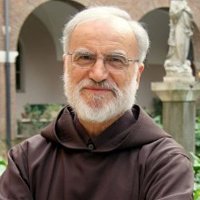 he Baptism in the Spirit's effectiveness in reactivating baptism consists in this: finally man contributes his part -- namely, he makes a choice of faith, prepared in repentance, that allows the that allows the work of God to set itself free and to emanate all its strength. It is as if the plug is pulled and the light is switched on. The gift of God is finally "untied" and the Spirit is allowed to flow like a ftragrance in the Christian life.
he Baptism in the Spirit's effectiveness in reactivating baptism consists in this: finally man contributes his part -- namely, he makes a choice of faith, prepared in repentance, that allows the that allows the work of God to set itself free and to emanate all its strength. It is as if the plug is pulled and the light is switched on. The gift of God is finally "untied" and the Spirit is allowed to flow like a ftragrance in the Christian life. - Peter Hocken
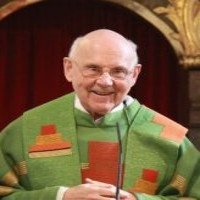 During the night between Friday and Saturday, in the early morning hours of 10 June 2017, the Lord called back to Him a great man, Father Peter Hocken.
He died at the age of almost 85. He was a servant of God, a friend, a priest who loyally served the Body of Christ until his last breath, all the world round. The Lord gave him an extraordinary intellect and wisdom, together with the experience of baptism in the Holy Spirit. He also received from God the talent and ability to provide specific and comprehensible theological explanations and descriptions of spiritual experiences that are taking place within the Church, notably after the Second Vatican Council.
During the night between Friday and Saturday, in the early morning hours of 10 June 2017, the Lord called back to Him a great man, Father Peter Hocken.
He died at the age of almost 85. He was a servant of God, a friend, a priest who loyally served the Body of Christ until his last breath, all the world round. The Lord gave him an extraordinary intellect and wisdom, together with the experience of baptism in the Holy Spirit. He also received from God the talent and ability to provide specific and comprehensible theological explanations and descriptions of spiritual experiences that are taking place within the Church, notably after the Second Vatican Council. - Dr. Martin Luther King Jr.
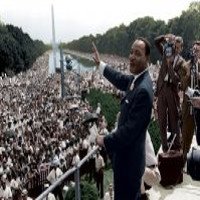 "I have a dream," he began, "that one day on the red hills of Georgia, sons of former slaves and sons of former slave-owners will be able to sit down together at the table of brotherhood. "I have a dream my four little children will one day live in a nation where they will not be judged by the color of their skin but by the content of their character."
"I have a dream," he began, "that one day on the red hills of Georgia, sons of former slaves and sons of former slave-owners will be able to sit down together at the table of brotherhood. "I have a dream my four little children will one day live in a nation where they will not be judged by the color of their skin but by the content of their character." - Peter Dufka SJ
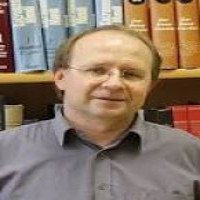 We all know, based on our personal experience, that the cooperation with most intelligent people is not often easy. These people usually do not establish friendship easily. It is interesting also that university graduates with an honour degree usually do not fit in to the working environment in the best way and that their high intellect is of a little help in overcoming personal or marriage crises.
We all know, based on our personal experience, that the cooperation with most intelligent people is not often easy. These people usually do not establish friendship easily. It is interesting also that university graduates with an honour degree usually do not fit in to the working environment in the best way and that their high intellect is of a little help in overcoming personal or marriage crises. - Marek Nikolov
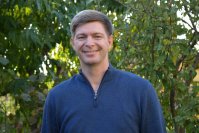 The aim of the “Jesus Heals” prayer gatherings is experiencing the fact that God is Love. He is Love that wants to give itself to other people. God wants to show us His mercy even through healing, signs, wonders, and miracles.
The aim of the “Jesus Heals” prayer gatherings is experiencing the fact that God is Love. He is Love that wants to give itself to other people. God wants to show us His mercy even through healing, signs, wonders, and miracles.
Video
Prorocká výzva Geoffa Poultera pre Slovensko, ktorá sa začína napĺňať.
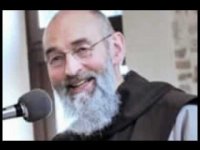 Zaujímavá a výpovedná skúsenosť západoeurópskeho muža s hinduizmom, budhizmom, jógou, ezoterikou a okultizmom.
Zaujímavá a výpovedná skúsenosť západoeurópskeho muža s hinduizmom, budhizmom, jógou, ezoterikou a okultizmom.
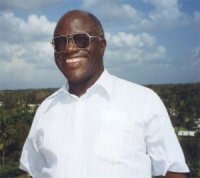 Príbeh bývalého teroristu, ktorý dnes spája etniká a kmene.
Príbeh bývalého teroristu, ktorý dnes spája etniká a kmene.
Stephen Lungu
 Hudobníčka Lacey Sturm, bývalá speváčka kapely Flyleaf, bola presvedčenou ateistkou a mala v úmysle vziať si život... ale zrazu sa všetko zmenilo.
Hudobníčka Lacey Sturm, bývalá speváčka kapely Flyleaf, bola presvedčenou ateistkou a mala v úmysle vziať si život... ale zrazu sa všetko zmenilo.
We all are part of a great story. The great story of the world is composed of past and present stories of lives of individual people. The portal mojpribeh.sk is focused on the most important moment of the story of the world and individual, the moment of personal experience of person with God.
Story - Jay Sekulow
How a Jewish Lawyer from Brooklyn Came to Believe in Jesus
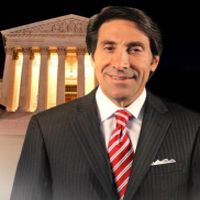
Before the justices of the Supreme Court of the United States he defended the constitutional right to stand in an airport and hand out tracts about Jesus.
I came to the courtroom early, before the proceedings began. The podium was adjustable, right? I lowered it. I'm five feet, seven and a half inches tall and the last thing I needed was to be standing up on the tips of my toes to reach the podium! When I came back later, for the proceedings, I looked in the back row and there, sitting all together, were my good friends, Moishe Rosen (founder of Jews for Jesus, and at the time, executive director), Tuvya Zaretsky, Susan Perlman and Russ Reed (three of Jews for Jesus' board members), plus my wife, my parents, and a lady from the Los Angeles Board of Airport Commissioners who accidentally sat in the wrong row!
The thing that struck me was, when I looked back at the "Christian row" my parents were right in there. Whatever their feelings may be about my beliefs, they were there to support me. And I felt God's presence in that courtroom.
I wasn't too nervous until a couple of weeks before the trial, at which time I became pretty tense. I mean, for a while there, I was physically sick. I knew I was not the best. I don't generally lack confidence, but this was definitely the "big leagues." Despite all the commercial success I'd achieved as a lawyer, I knew that in the Supreme Court of the United States, I was basically just a kid. At age 30, I had to get special permission to defend the case. Yet, by the time I walked into the courtroom I felt great. I should have been a nervous wreck but I wasn't. People were praying for me and God came through.
The stairs I had to climb to get into that courtroom seemed like they were made for giants. And it felt like 14 flights, though I'm sure that's an exaggeration. I signed in with the clerk of the court, who, if I were Catholic, I would say he ought to be canonized. His job, in addition to the paperwork, is to create an air of friendliness which helps soothe last minute jitters. He tells you how it's going to be fun, you're going to enjoy it; everybody looks great--he helps everyone relax.
Next, I met the Marshal, who was decked out in a full-length tuxedo. Once the clerk helps the participants to relax, the Marshal underscores the formality of the whole procedure. He is the one who says "Oye, oye oye. The Supreme Court of the United States is now in session. All these gathered, draw nigh and speak your peace."
The room itself is awe inspiring. The ceilings in the Supreme Court of the United States are about 30-feet high, or at least they seem like it! They are painted very elaborately--lots of gold, with "Equal justice under the law" in big, fancy letters--and the most ostentatious Greco-Roman architecture imaginable. The justices come walking out in their big dark robes and slam down the gavel. I'm telling you my heart skipped a beat--it was very impressive. I was sitting about eight feet away from the justices, maybe ten. My opponent was just across a little podium from me; we were practically staring into each other's faces.
I knew God was present. It was clear. Even my parents, who don't believe like I do, said "the calmness was eerie." My wife (who does believe like I do) put it a little differently. She said she sensed the presence of the Spirit of God. My parents weren't sure what they sensed, but they knew it was something very much out of the ordinary.
The actual proceedings began with announcements of verdicts from previous cases. Then they started the day's docket. Our case was the first to be heard that day. I could hardly believe it when I heard them say, "Now we'll hear case #86-104: Board of Airport Commissioners et al. versus Jews for Jesus." While the justices were busy raking the opposing counsel over the coals, I was sitting with Barry Fisher (the civil rights attorney who assisted me) changing the strategy of our case. We saw where the judges were headed and we knew we'd have to reply to what was being said.
Half an hour later, I heard a voice call out, "Mr. Sekulow?" And I went up there. Me, a short Jewish guy from Brooklyn, New York, went before the justices of the Supreme Court of the United States to defend the constitutional right to stand in an airport and hand out tracts about Jesus!
I'd prepared my first sentence carefully, because I knew it might be my only opportunity to make a statement. I said: "Mr. Chief Justice, may it please the court, local governments have important interests to protect concerning the efficient operation of the airports under their jurisdiction; however, the facts in this case do not justify the repression of cherished first amendment freedoms based on a broad ban prohibiting all first amendment activities to take place." That's all I got to say. That was it. Because for the next half hour, they grilled me.
Justice Scalia and I got into a dialogue that reminded me of the teacher-student interactions from my days back in law school. He'd say "What if this and this?" and I'd have to answer him. There were times when I had to say, "Your honor, that's exactly what I did not say. You left out such and such." And so it went for the next thirty minutes of what was probably the most intense experience of my life.
I left the courtroom feeling like the Beatles must have felt leaving Shea Stadium. Or for those who might not know the Beatles, I felt like "Rocky" after the fight. If you don't know about Rocky, how about a prima ballerina after her first performance? Okay, so a ballerina I'm not, but I felt great! I knew God had brought me through that trial--and he'd brought me through much better than I'd dared to hope.
I had walked into the courtroom thinking about Jesus and how he overturned the moneychangers' tables at the Temple. Jesus was an activist; he stood up for what he knew was right. I drew strength from his example.
This case had already been decided in our favor by two lower circuit courts. The judges had ruled that people cannot be excluded from exercising first amendment rights in the airport. I know it's a sidetrack, but the lawyer in me can't resist cautioning the reader against sympathizing too quickly with the airport commission, which is trying to restrict the distribution of religious literature. Whether or not one appreciates seeing individuals clad in "Jews for Jesus" T-shirts handing out literature at the airport is immaterial. If their rights of free speech are denied in the airport, who knows when and where you may eventually be denied your freedom of speech?
So now you know about my big day in the Supreme Court. And you've probably surmised that my interest in the case was from more than a purely legal perspective
So how did a Jewish kid from New York get involved with Jesus? It happened like this....
I was born on June 10, 1956, in Brooklyn, but we moved to Long Island just after I was born and lived there until I was into my teens. My family attended a Reform synagogue in Long Island; it was not a fancy building, but I remember it had thick, plush drapes. It's funny, the things one remembers. I was very impressed with those drapes; I don't know, maybe because my friend's dad donated them. I liked Friday night services, which we attended about once a month, but Hebrew school, well, unfortunately, none of the kids in our class liked Hebrew school. We were not very well behaved. Sometimes I had the feeling the only reason the cantor didn't kick my friend and me out of the class (which he threatened to do) was because that was the friend whose dad donated the drapes!
"Religion" was not a big topic of discussion in our home. Sometimes my father referred to "The Supreme Being," but he usually reserved such references for the holidays.
I didn't think much about God either. I do remember that when I was 13 years old, I'd exchange friendly insults with a Gentile friend of mine, a Catholic. We'd tease each other about our different backgrounds. We were never really serious about it, but I do remember wondering for a brief moment whether Shaun could possibly be right about Jesus. It seemed strange that such a thought would even enter my mind, but it left about as abruptly as it had come. I was pretty secure in my Jewish identity, which, as far as I knew included not believing in Jesus. Although we weren't "religious" we did many things to reinforce our culture and our heritage. I especially enjoyed the many Jewish celebrations: my bar mitzvah, for example.
That was a red letter day. Instead of my usual blue yarmulka with the white lining, I wore a white satin yarmulka with gold embroidery, and a tallis to match. Maybe my performance was leaning toward mediocre, but still, to be bar mitzvah signalled the end of Hebrew school and the thrill of "growing up."
Two years later, my family left New York and moved to Atlanta, Georgia. We joined a synagogue which I would describe as "very Reform." In contrast to our little Long Island synagogue, this one was quite elaborate. An ornate chandelier hung from the center of the beautiful domed ceiling; the ark was made of marble and gold, and we had gold velvet cushions on the seats to match.
As with the synagogue, our new home was also fancier than what we had in Long Island. It was a traditional two-story colonial brick house. Even with all the extra space, we still ended up congregating in the kitchen. It wasn't just for meals, although you'd better believe, my mother makes a great meat loaf. The kitchen was also the place for my parents, my two brothers, my sister and me to shmues and enjoy each other's company.
My high school grades were pretty much like my bar mitzvah Torah reading--mediocre. It wasn't dull wits or laziness, just a short supply of motivation. I actually enjoyed hard work. In fact, I went out and got a job just as soon as I could. By the time I was 17 years old, I was a night manager at a large department store called "Richway." I had my own set of keys and adult responsibilities. I always loved to work; it's just that I waited until college to start working at my grades.My original plan was to attend a two-year college for some business education courses, and go straight back to work. After a short stint at the local junior college, I developed an appetite for learning and decided to enroll in a four-year school.
My desire to stay in Atlanta was probably the main reason I looked into Atlanta Baptist College (later known as Mercer University). I visited the school and found the friendly, small campus atmosphere appealing. To add to the appeal, the campus was only a five-minute drive from our house! "Dad," I asked, "Will it bother you if I go to a school that calls itself a Baptist college?" But my Dad is a pragmatic man. "Baptist-shmaptist," he told me. "I'm glad you decided on a four-year college. Go ahead, get yourself a good education."
I enrolled in Atlanta Baptist College with a competitive determination to outstudy and outsmart "all the Christians." I did well in my pre-law studies, and attacked the mandatory Bible classes with a cynical confidence, certain that it would not be difficult to disprove "their" idea that Jesus was the Messiah.
I met a guy named Glenn Borders, whom I immediately labelled a "Jesus freak." Glenn took his religion seriously. There could be no doubt of that; he wore a big wooden cross around his neck! I knew of Jewish people who wore a rather large "chai" but I'd never seen anything the size of Glenn's cross. Despite his outward appearance, Glenn turned out to be a "regular guy." When we talked, I forgot about the big wood cross--maybe because Glenn wasn't trying to shove it down my throat.
It turned out that Glenn played college sports, was active in the student government association, and he even managed to find time to be a good student. Glenn was the kind of person who was there to help if you needed him. He was a good friend. It was partly due to our friendship that my competitive attitude toward the Bible courses I was taking changed to an attitude of genuine curiosity.
Glenn suggested I read Isaiah 53. My mind was boggled by the description of the "suffering servant" who sounded so much like Jesus. I had to be misreading the text. I realized with relief that I was reading from a "King James" Bible, and after all, that's a "Christian" translation. So the first thing I said to Glenn after I read it was "Okay, now give me a real Bible." I grabbed the Jewish text, but the description seemed just as clear. Even though this caught my attention, I wasn't too worried. It still sounded like Jesus in the "Jewish Bible," but there had to be a logical explanation.
I began to research the passage and I started to look for rabbinic interpretations. That's when I began to worry. If I read the passage once, I'm sure I read it 500 times. I looked for as many traditional Jewish interpretations as I could find. A number of them, especially the earlier ones, described the text as a messianic prophecy. Other interpretations claimed the suffering servant was Isaiah himself, or even the nation of Israel, but those explanations were an embarrassment to me. The details in the text obviously don't add up to the prophet Isaiah or the nation of Israel. Did I ask the rabbis? No, I didn't ask the rabbis. I read what the rabbis had written over the years, beginning with ancient times, but frankly, I hadn't been too impressed with anyone I'd met lately. My last impression of what to expect from the Jewish religious establishment had been in a service where, when somebody sneezed the rabbi said, "God bless you." Then he said, "What am I saying? I don't believe in God."
I kept looking for a traditional Jewish explanation that would satisfy, but found none. The only plausible explanation seemed to be Jesus. My Christian friends were suggesting other passages for me to read, such as Daniel 9. As I read, my suspicion that Jesus might really be the Messiah was confirmed. That decision however, was strictly intellectual. I'd been struggling to resolve this question for about a year, and I was glad to have finally arrived at a decision.
How did I feel about believing that Jesus was the Messiah? Actually, I was half relieved. Once I'd gotten past the point of not wanting to know, once I took out my paper and pencil and began my lists of why Jesus was the Messiah on one side and why he wasn't on the other--I realized something. I had never felt the need for a Messiah before, but now that I was studying the prophecies and reading about what the Messiah was supposed to do, it sounded pretty good. I'd always thought my cultural Judaism was sufficient, but in the course of studying about the Messiah who would die as a sin bearer, I realized that I needed a Messiah to do that for me. When I concluded that Jesus was that Messiah, I was grateful. It didn't occur to me that I needed to do anything about it.
A few days later, one of my Christian friends invited me to hear Jews for Jesus' singing group, The Liberated Wailing Wall. You have no idea what a relief it was to see other Jews who believed that Jesus is the Messiah. Their presentation of "Jewish gospel music" and some of the things they said helped me realize that if I really believed in Jesus, I needed to make a commitment to him. At the end of the program, they sang a song called "I Am Not Ashamed of the Gospel" and they invited people who wanted to commit their life to Jesus to come up the aisle to meet with them at the front of the church. I responded to that invitation. It was February, 1976.
I wasn't concerned about how my parents would respond. It didn't enter my mind that they might be upset. After all, Jesus was a Jew. I knew that much. I didn't see what the big deal would be about my believing he was the Jewish Messiah. He was Jewish, I was Jewish, I didn't see that there was any reason for us not to believe in him.
As I walked up the aisle in response to the invitation, I got my first hint that Jews who believe in Jesus are sometimes ostracized by family and friends. A lady I'd never met said, "If you get kicked out of your home tonight, you can stay with us." I had a very good relationship with my parents. I didn't smoke, drink, use dope--I didn't give them grief and we were always very close. Did this lady know something that I didn't?
As it turned out, my parents did not react the way I know that some families of Jewish believers have. But after what this woman had said, frankly, I was a little scared. I wasn't prepared for that kind of a reaction, so I decided I wouldn't say anything at first; I'd wait a while. But my relationship with my parents was such that I just couldn't do that. I could not keep such a major decision from them. I tried, but I really couldn't. I got home at about 11 p.m. and went to sleep. I woke up at about two o'clock in the morning. I couldn't go back to sleep, so what did I do? I went and woke my father. I told him I'd decided Jesus was our Messiah. His response was, "You decided?" And of course, he was implying, "Who are you to decide?" but he didn't elaborate. He just shook his head sleepily and said, "We'll talk about it in the morning."
Well, morning came, and he didn't say a word about it. Neither did I. My parents knew I believed in Jesus; they knew I was getting literature from Jews for Jesus because I was living at home and they saw it. In fact, I know they read some of it out of curiosity. Sometimes I'd find it in the "reading room" (the bathroom)--not in the trash--just out where it was obvious that my dad had been looking over it. Since I was living under their roof, I felt if they didn't want to discuss it, I should leave well enough alone. Our relationship didn't change and I have always been grateful that whatever my parents might think of my beliefs, they love and respect me enough to prevent any disagreement from tearing us apart.
It wasn't until three years later that my parents and I actually discussed the subject of Jesus. I was in law school at Mercer at the time. Jews for Jesus ran a gospel statement in the Macon paper, "The Messiah has come and his name is Y'shua." My parents either came across the ad, or I showed it to them; I don't remember which. We discussed it; they didn't agree, but they were never hostile. They knew I was still Jewish; they knew I hadn't undergone any drastic personality changes--I wasn't involved with some strange cult.
I got married in 1978 on my birthday, June 10. I had just completed my first year of law school. I went on to graduate from law school in the top 5% of my class. I began my career at law as a tax prosecutor for the IRS. It was the best experience I could have had. In one sense it's a miserable job; prosecuting people for fraud and tax evasion never won anybody a popularity contest. I even had a few death threats from time to time. What made it worthwhile was the fact that I was trying as many as twelve cases per week. It was phenomenal. That kind of experience can really launch a person into a terrific career--if the person wins their cases, which I did. I stayed with the IRS for about eighteen months, then my name came up for a transfer which I didn't want to take.
Vtedy som si uvedomil: „Ak si chcem založiť súkromnú prax, teraz je na to vhodný čas.“ A tak sme sAt that point, I figured, "If I'm going to set up private practice, now is the time to do it." So I rented space with a friend from law school. Our monthly overhead was about $1600. I thought that was a fortune! I didn't have a client, not one, but I did have some good contacts. In less than eight months, my firm was up to nine lawyers, two full- time CPAs and three para-legals. We were the fastest growing firm in Atlanta. How did we do it? We took on some pretty controversial cases and won. We were known as very tough litigators and we developed a rapport and a good client base. When people were in trouble, they went to Sekulow and Roth.
Stuart Roth and I could hardly believe that our clients were paying us these $25,000 and $35,000 retainers, and here we were just 26 years old. But despite the fact that we were very young, when clients walked out of our office, they knew we were taking care of them.Both my family and business life were flourishing. My wife and I had a son. In addition to the law practice, I began a real estate development firm which grossed over $20 million after the first year.
I kept in touch with Jews for Jesus and became a member of their board of directors. Business continued to flourish and Pam and I had another son. Yet there was something else I wanted to do. I thought more and more about using my legal skills to serve God. In 1986 I became the Jews for Jesus General Legal Counsel. That is how I happened to be defending a case before the Supreme Court of the United States, as described at the beginning of my story.
Incidentally, the verdict on that case was unanimous. The decisions of the lower circuit courts were upheld, and the Supreme Court declared the airport's resolution to curtail first amendment rights unconstitutional.
Since the trial is over, however, I can devote myself to C.A.S.E: Christian Advocates Serving Evangelism. That is what we've named the new organization which will be defending the legal rights of individuals and organizations who are telling the gospel--specifically in issues relating to access, as in parks, college campuses, street corners, and of course, airports. We will work with other groups to ensure that the access to first amendment rights remains protected.
It's pretty scary to think that the day could come when people might be prohibited from expressing their beliefs in a public forum.
The public, of course, has the right to refuse the literature. If people are annoyed that there are Jews (and others) who believe in Jesus, then so be it. But there are people who are looking for God, for answers to the question of how to know him. They need to hear the good news about the Messiah, and we must protect our right to tell them.
Latest
- Rhett Vorster
Personal experience with Christ - Paul Holliday
Seeking answers to the afterlife - Harriet Coombe
Something better than healing - Denis Chane Sing Guan
Hearts home - Milan Tószegi
I did not see it yet, but I believed in His Word.
Random
- Milan Tószegi
I did not see it yet, but I believed in His Word. - Sasa Patalakh
- Stephen Lungu
- Prof. Ján Košturiak
My road to God was not straight - Anton Srholec
Total: 162 stories in this language.
There are 517 in all languages. To change the language please click on one of the flags.
Talks
- Geoff a Gina Poulter
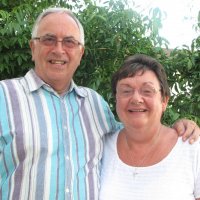 Geoff and Gina Poulter are active in healing ministry in Great Britain and in other European countries. They have zeal for building Lords kingdom. In Slovakia are already known mainly throwgh Jesus heals ministry where they were main speakers. They believe, that Lord comes with power, when we call him by His name and walk in faith. They are full of gentleness and kind behavior to people, which they serve with prayer for healing and prophetic giftings. Their ministry folows healings, sings and wonders.
Geoff and Gina Poulter are active in healing ministry in Great Britain and in other European countries. They have zeal for building Lords kingdom. In Slovakia are already known mainly throwgh Jesus heals ministry where they were main speakers. They believe, that Lord comes with power, when we call him by His name and walk in faith. They are full of gentleness and kind behavior to people, which they serve with prayer for healing and prophetic giftings. Their ministry folows healings, sings and wonders. - Petr Jašek
 As we know, faith is not a question of heritage. People must get their personal relation with the Lord Jesus Christ. This cannot be inherited. You have to be reborn in Jesus. In my life something similar happened.
As we know, faith is not a question of heritage. People must get their personal relation with the Lord Jesus Christ. This cannot be inherited. You have to be reborn in Jesus. In my life something similar happened. - Ján Volko
 I think Jesus plays a very important role. Faith in God helps me in difficult moments and also during competitions. I feel that God gives me His graces and blessing – and this is a huge support for me.
I think Jesus plays a very important role. Faith in God helps me in difficult moments and also during competitions. I feel that God gives me His graces and blessing – and this is a huge support for me.

